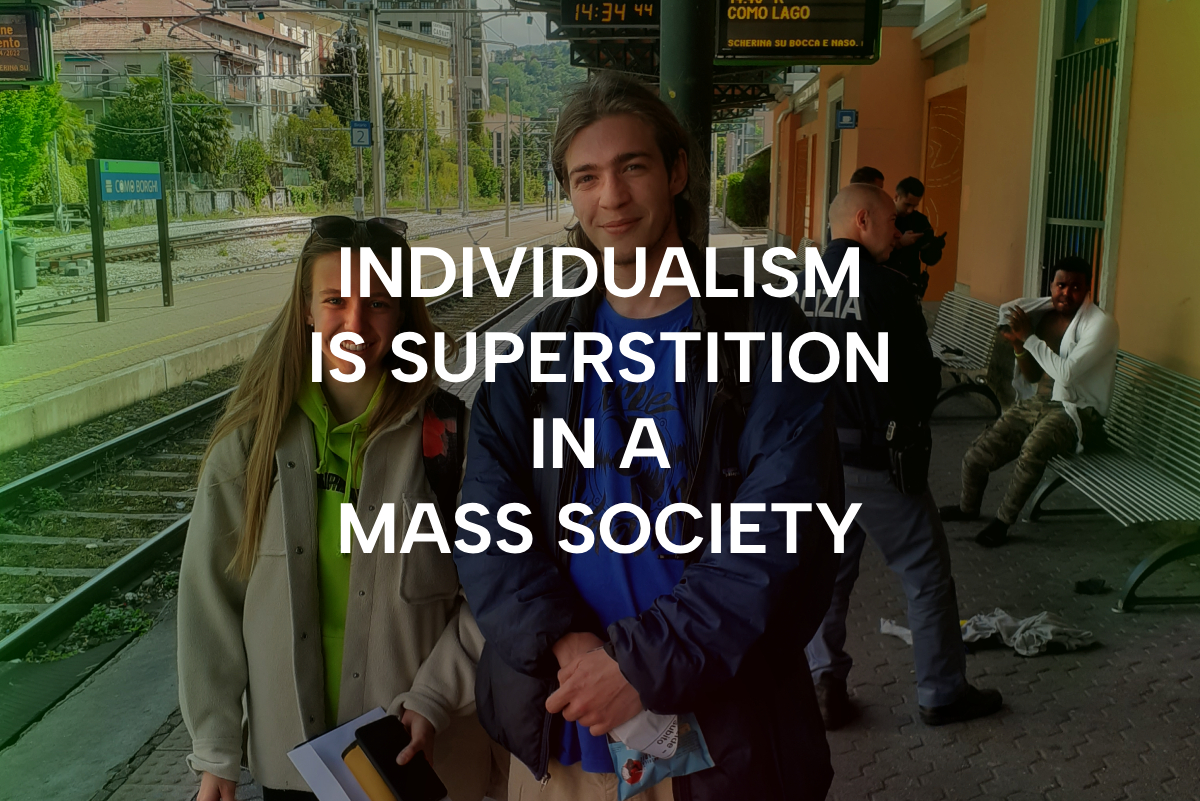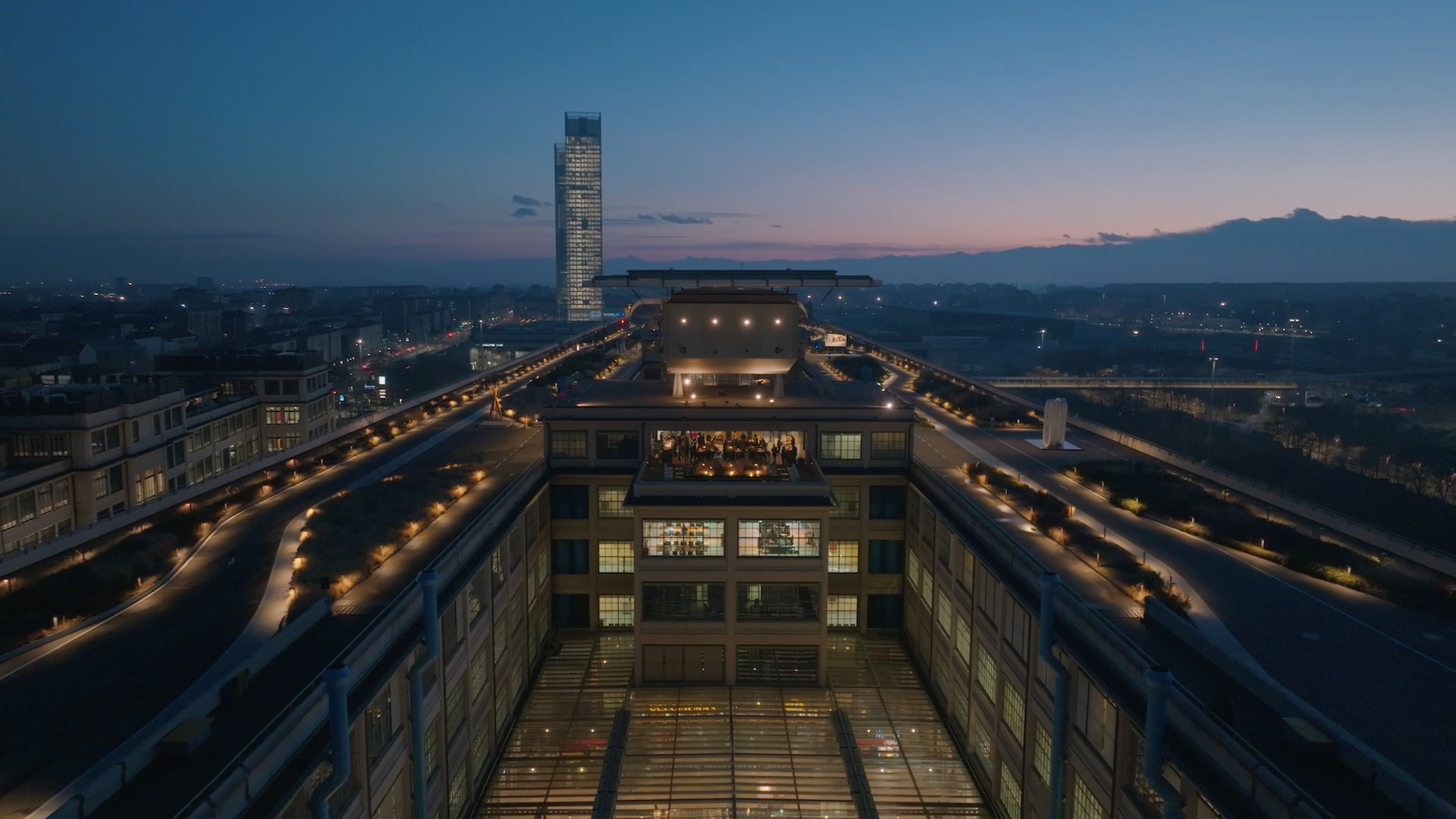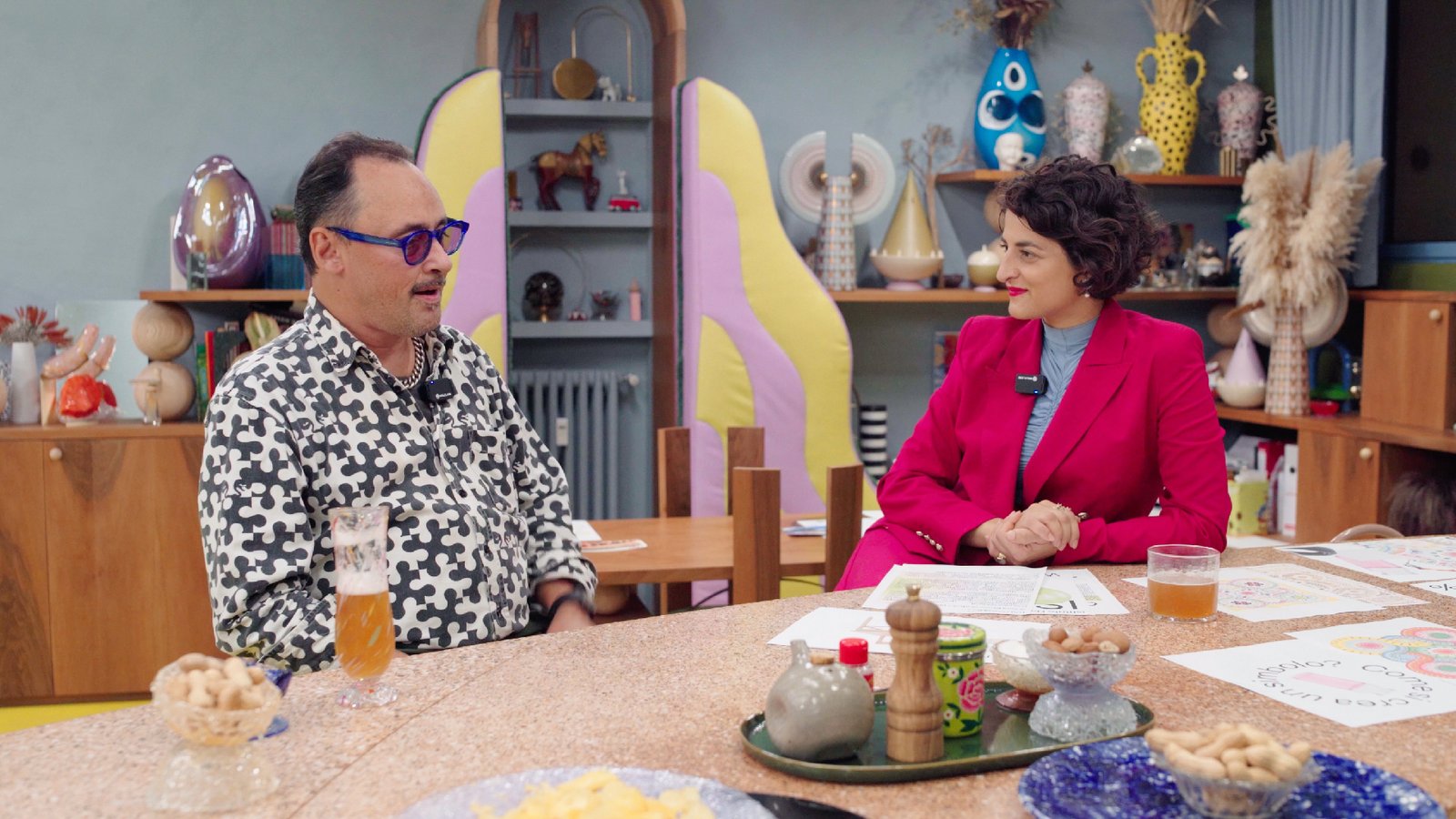
IDENTITY, TIME, SPACE: THE GAMES OF THYSELF AGENCY
A conversation and reflection on Thyself Agency, the artistic project that presents itself as a travel agency for "expeditions into the unknown." Until the end of March, their info point will be hosted at the BiM space in Milan.
Dystopic is a term that refers to an organ in an abnormal position relative to its normal location. Thus, in literary and sci-fi language, a dystopia is typically portrayed as belonging to a hypothetical society or world characterized by oppressive expressions taken to their extreme limits. It is exactly the opposite of a utopia, where everything is where it should be.
The exercises of Thyself Agency travel along a thin line separating what is from what should be, without clearly understanding, at the beginning of the journey, the right placement of those engaging in the game. They, therefore, restore the truth.
But what is truth?
This question has crossed my mind many times since I first encountered the artistic project Thyself Agency last year, a travel agency specializing in organizing "expeditions into the unknown" by practicing maieutics through three specific exercises: "life exchange," "the nine-day week," and "the glasses." These exercises manipulate the perception of the three fundamental elements of materialist illusion: identity, time, and space, making them waver, questioning them, governing them, and even denying them.
THE THYSELF AGENCY
The agency was founded by the artist Luca De Leva, who first experimented on himself with the Life Exchange exercise in 2011 by swapping his life with another person in the city of Beirut. That experience, born from a moment of "deep experimentation and existential despair," became the foundation and heart of making a personal experience accessible to anyone else, not through documentation but through practice.
“Inspired by the sensitivity of artists, we have sought to exaggerate the contradictions of our time and our desires. From birth, we are taught to protect and cultivate our freedom as the highest possible value, but reality then shows us this freedom mutilated and sacrificed on the altar of society and profit, as if our lives do not truly belong to us, not entirely. But if life is not mine, then let it not be mine at all, and let it be exchanged with others.” (Quote from an interview by Erka Shalari published on les-nouveaux-riches.com, February 2025)
The role of the agents in these journeys is crucial as they allow the exercises to unfold autonomously until the candidates finally manage to let go. The primary goal of this research is, indeed, abandonment—leaving oneself, extreme loss, renouncing distractions. Solitude. Nakedness.
The exercises help achieve awareness by eliminating behavioral automatisms, applying the right pressure so that participants can activate their innate abilities to regain clarity amid confusion. “Our work is not for profit or entertainment; it is entirely free and real. It aims for abandonment, brings awareness. It lives in dirt and cleanses.”

I want to change my life
Vorrei cambiare vita
We started swapping our lives with one another, with radical honesty, to see what happens by desacralizing them at the core, to reach our true roots. And we got there, dear customer, but then the unexpected happened: three eyes were waiting for us, three eyes stared at us: the first has a name, the second a schedule, the third a place. Holding their gaze is difficult—too many distractions. That’s why we invented the exercises, to never close ours, to truly know ourselves. Now we cannot believe any lies; the audacity of sensitivity explores the reflections of truth in the cracks of our hearts. (FUGA, D. Daninos, 2023)
To achieve awareness, the agency offers three different types of exercises, each playing with a key element of reality: identity, space, and time. Each traveler can choose which journey to undertake or experiment with all three under the guidance of the agents (a role that becomes even more intriguing when considering the etymology of the word "agent"—one who provokes a certain effect).
The first exercise, perhaps the most radical, is Life Exchange. For a week, two candidates swap everything about their lives, living as each other. This extreme practice of empathy, by seeing the world through another’s eyes, leads to self-transformation. The Journal on the agency’s website collects many testimonials from those who have practiced the exchange, including Milanese artist Thomas Berra.
I asked him what had driven him to participate and why, among various projects, he chose to try life exchange. Furthermore, I inquired about his thoughts on the search for truth, the biggest challenges he faced, and how stepping into another’s shoes changed him.
The complexity of the questions was met with the clarity of his response. Thomas answered: “Life exchange is an immersive experience within yourself. I chose to participate because I felt the need to rediscover myself through another person’s habits. There were no difficulties. One must arm oneself with courage and take a leap into the void. Which, in the end, is not empty but full of experiences. Living Elena’s life (his exchange partner, ed.) confronted me with burdens weighing down my path. The changes are immediately strong but then continue to return in different shades. I would do it again and highly recommend it.”
Seeing through another’s eyes to imagine a different "self."
The second exercise is the exact opposite. The glasses allow one to see themselves in the third person, subverting their self-perception through a simple device. Used in daily life, they show the wearer how they eat, love, and move. The eye, once turned to the Other, now points toward oneself. The Other and the Self merge. Judge, judged, rehabilitating, and rehabilitated blend and blur.
Finally, the third exercise plays with time, proposing a nine-day week. By adjusting the sleep-wake cycle, more time is created to cultivate one's true interests. Most importantly, by disrupting daily routines, "one can touch the psychic coordinates of one's imaginative life and evolve the constitution of our minds. Each day still has its burden, but new solutions emerge spontaneously." The experience almost certainly leads to job termination, apparently.

Yet, we still haven’t reached a definition of truth as Thyself Agency sees it.
So, I asked the agents directly, staring at the agency's logo—so exotic, relaxed, blessed. The question I posed concerns the very concept of truth: to what does it refer? The truth about oneself? The connection with one's most intimate and naked nature? The answer is a challenge, but perhaps this is the key to the enigma, the pharmakon that instills doubt and shows the path to healing.
“THERE EXISTS SOMETHING THAT HAS NO COMPARISON, BUT IF IT HAS NO COMPARISON, THEN IT DOES NOT EXIST. WE PLACE OUR MINDS INTO WHAT DOES NOT EXIST, AND BY MAKING IT OUR PRIORITY, WE REALIZE THAT IT IS WE WHO DO NOT EXIST. This is an interesting question. I think the answer lies in the desires of each of us, the desire to escape, and the awareness that we cannot flee. There is a world outside of our convictions that is, in fact, the real world. When we manage to open ourselves to receive it, without affirming anything, we develop our highest possibility.
DO YOU WANT TO TRY?”
All the Images courtesy of Thyself Agency.
Gaia Badioni (1986) took her first steps in the art sector by working for a decade within prestigious Milanese institutions dedicated to contemporary art - including Pirelli HangarBicocca and Fondazione Prada - covering various roles for them.
Always accustomed to observing, listening, feeling and experiencing Art in all its forms, she then decided to recount her experiences through writing, combining her museum work, starting in 2013, with that of a contributor for various sector magazines such as Inside Art, Lara Facco's Telescope, Rivista Studio, the Walkman Magazine, D'Ars Magazine, and Juliet Art Magazine, an activity she still maintains today.
His training is continuous. Her most significant experiences include the course "Literary Social Media Content Creator for Contemporary Art Museums" at the Rivoli Castle curated by Gianluigi Ricuperati; "September Book", art publishing workshop at the ICA Foundation in Milan; "Fare Arte", residency at La Scuola di Palazzo Te (Mantua), with Stefano Arienti, Mariangela Gualtieri and Stefano Baia Curioni. She is currently a graduate student in Publishing and Visual and Digital Communication at the University of Bergamo.



